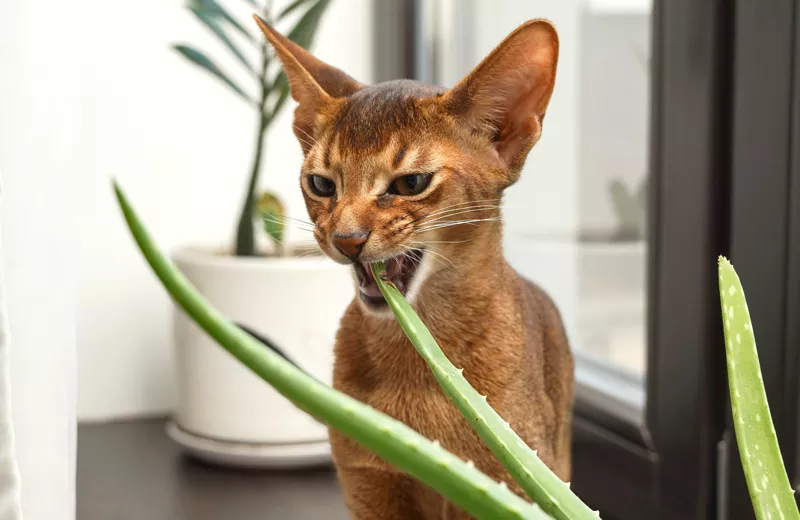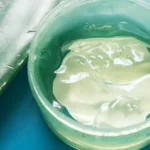Cats are curious creatures, often exploring and sometimes nibbling on household plants. A typical plant in many homes is the Aloe Vera, famed for its medicinal properties for humans.
Understanding Aloe Vera’s Toxic Components For Felines
Aloe Vera is widely recognized for its soothing gel, which is beneficial for skin irritations and minor burns in humans. However, for cats, the situation is starkly different. The plant contains compounds known as saponins and aloin. These substances, mainly concentrated in the outer leaf skin, act as a potent laxative and can be harmful when ingested by cats.
Symptoms of Aloe Vera Toxicity in Cats
When a cat ingests Aloe Vera, it may exhibit a range of symptoms signaling distress. The severity can vary based on the amount ingested and the individual cat’s sensitivity. Common symptoms include:
- Vomiting: Often, the first sign indicates the cat’s body attempts to rid itself of the toxic substance.
- Diarrhea: The laxative effect of aloin can lead to gastrointestinal upset.
- Depression: Affected cats may appear lethargic or uninterested in usual activities.
- Tremors: In more severe cases, ingestion can lead to muscle tremors.
- Change in urine color: Some cats may experience darker urine due to the plant’s compounds.
Immediate Actions if Your Cat Ingests Aloe Vera
Acting quickly is crucial if you suspect your cat has consumed any part of an Aloe Vera plant. Remove plant remnants from your cat’s reach and observe for any of the mentioned symptoms. Contact your veterinarian or an emergency animal poison control service immediately. They may advise inducing vomiting or providing activated charcoal to prevent further absorption of the toxins.
Preventive Measures for Cat Owners
The best approach to safeguarding your cat is prevention. Here are some strategies:
- Keep Aloe Vera Plants Out of Reach: Place them in areas your cat cannot access, like high shelves or closed rooms.
- Substitute with Cat-Friendly Plants: Consider replacing Aloe Vera with plants known to be non-toxic to cats, such as spider plants or Boston ferns.
- Educate Household Members: Ensure everyone in your home knows the risks and monitors the cat’s activities around plants.
While Aloe Vera offers numerous benefits for humans, it’s a different story for our feline friends. The plant’s toxic components can lead to uncomfortable and potentially severe health issues for cats. Understanding the symptoms of Aloe Vera toxicity and taking proactive measures to prevent your cat from ingesting the plant can ensure your pet’s safety and well-being. Always consult with a veterinarian if you have concerns about your cat’s health or if they have ingested Aloe Vera. Remember, a safe environment is a happy one for your curious and beloved pet.












